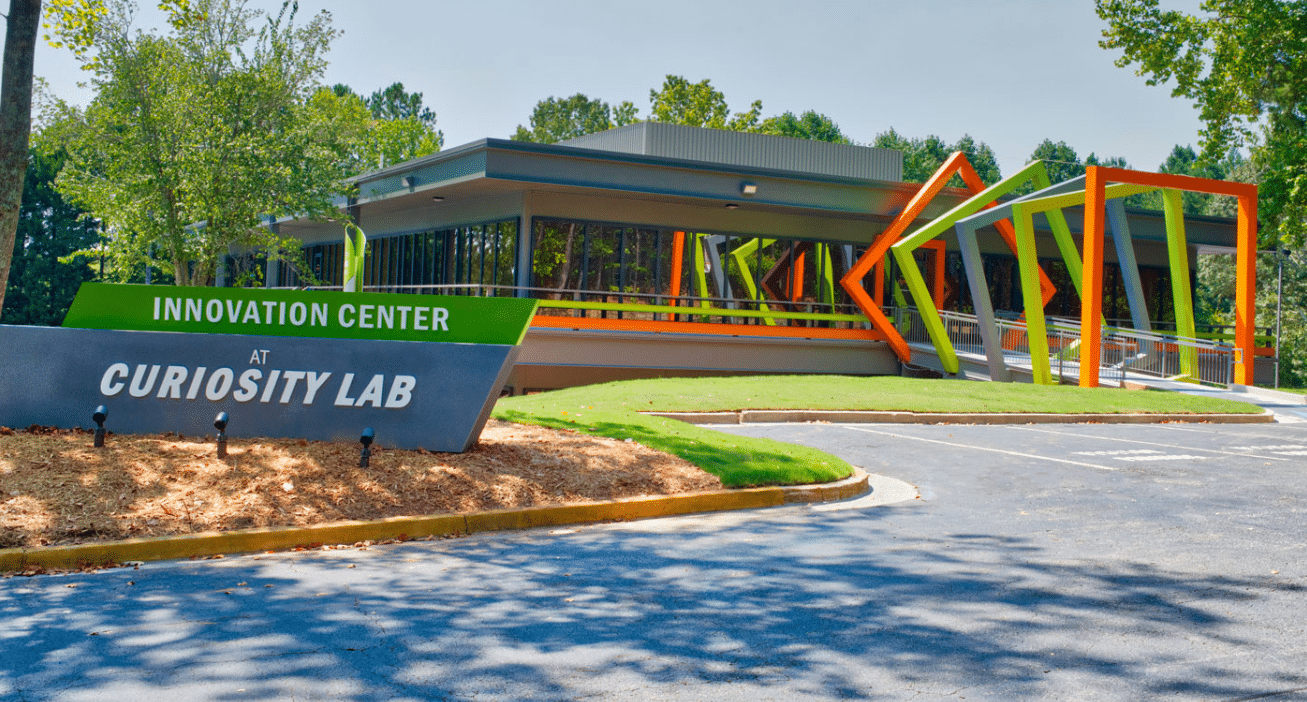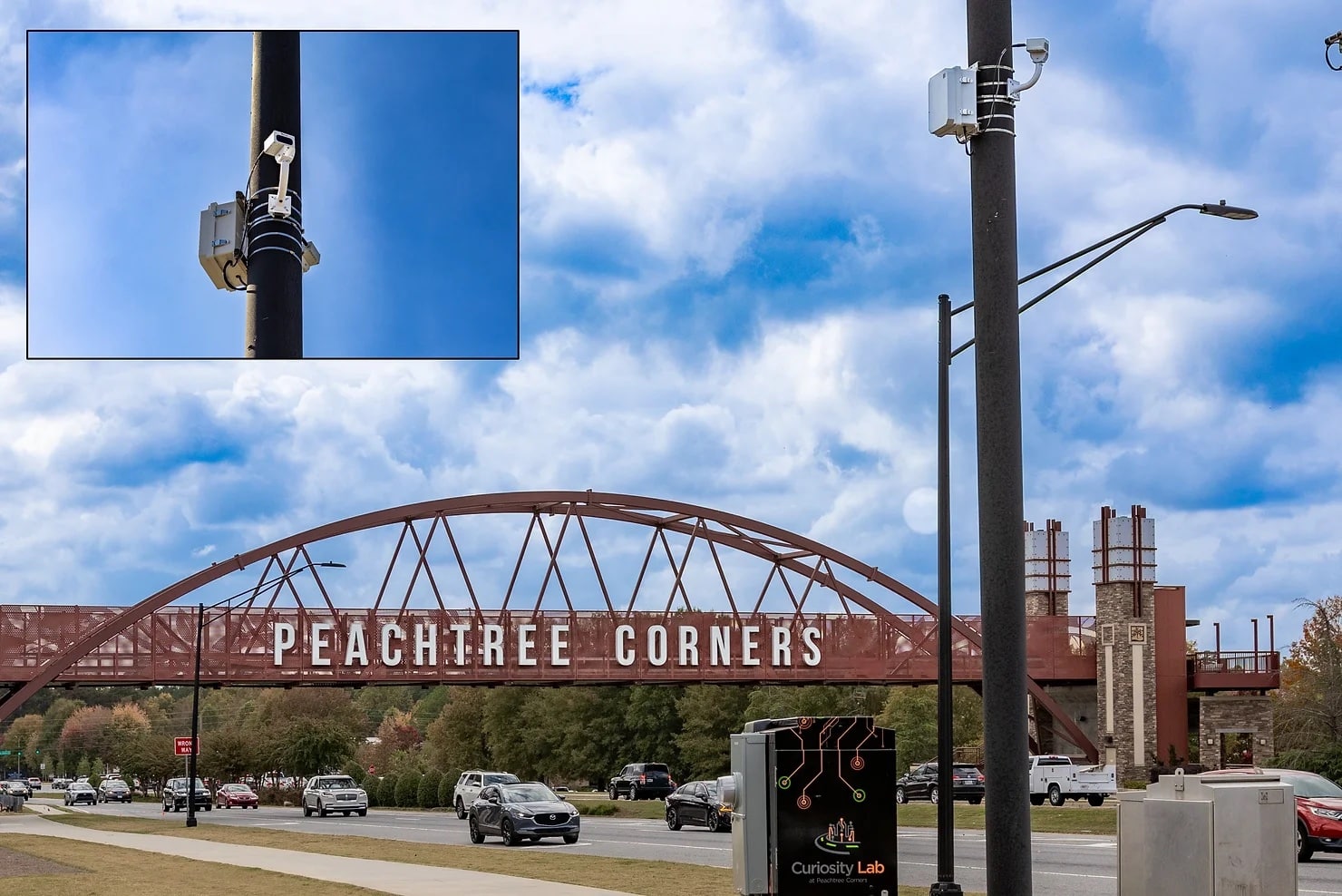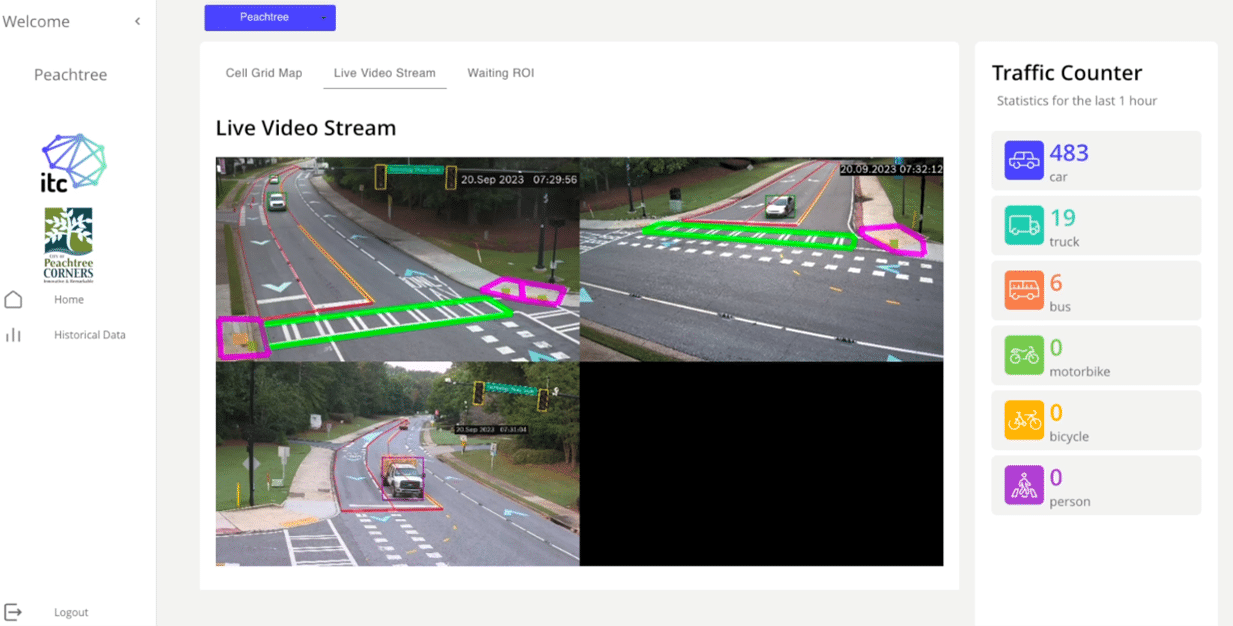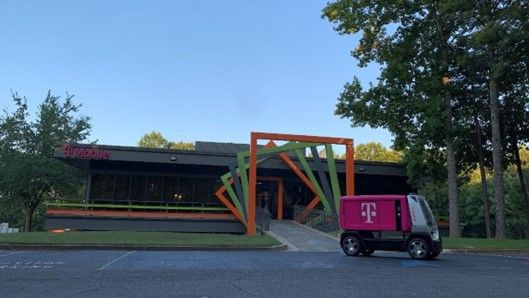Smart City and Innovations
International Leaders Gather for 10th Annual SMART Community Exchange 2023 in Peachtree Corners
Published
1 year agoon

SMART Community Council has hosted SMART Community Exchanges across the U.S. and Europe during the past decade, engaging executives, investors, innovators and advisors in hot spots of technology innovation.
Strong technology cooperation and the initiative to make communities smarter get support on both sides of the Atlantic. Leaders face the same challenges and see partnership opportunities to test, prove, commercialize and implement SMART solutions.
The 10th Annual SMART Community Exchange brings together SMART leaders, entrepreneurs, technologists, innovators and investors. The event will take place on Monday, October 30, from 9 a.m. to 5 p.m. at the Curiosity Lab in Peachtree Corners.
The focus is on SMART-R (SMART + Resilient) Infrastructure, energy, mobility, transportation, frontier technologies, safety and security, health and wellness, education, finance and more.
Participants include delegates from enterprises and organizations, higher education institutions, federal, state, and local governments, economic development, industry, manufacturers, labor organizations and workforce development.
“There is so much potential for companies to grow business through strategic partnerships in the hot spots of tech innovation across the United States. Many of these ‘hot spots’ are SMART Communities, such as Peachtree Corners, Georgia, and the Curiosity Lab, co-host of the SMART Community Exchange 2023,” said Tana Torrano, co-founder of the SMART Community Exchange.
Curiosity Lab at Peachtree Corners is a 5G-enabled intelligent mobility and smart city living laboratory near Atlanta.
Designed as a proving ground for IoT, mobility and smart city emerging technologies, the lab’s centerpiece is a three-mile public autonomous vehicle roadway leveraging cellular vehicle-to-everything (C-V2X) technologies.
The ecosystem’s infrastructure includes intelligent traffic cameras and signals, smart streetlights, the country’s first “IoT Central Control Room” implemented in a city and a 25,000-square-foot innovation center.
The Curiosity Lab, owned and operated by the City of Peachtree Corners, is one of North America’s only real-world testing environments.
SMART technology broadens access to new opportunities and markets in tech-intensive economies and benefits communities, businesses, governments and citizens on both sides of the Atlantic.
“US-EU cooperation matters today more than ever. We share the same values and commitment to serve as a catalyst for joint innovation. … Together, we are stronger to face today’s challenges and reap the benefits in a fast-changing world where technology plays a critical role,” stated Minna LeVine, Chair of the SMART Community Council.
Interested in attending? Register here! Registration is $97 per person and includes lunch, programming, VIP networking and a tour of Curiosity Lab.
Related
Smart City and Innovations
Opsys Collaborates with Curiosity Lab and City of Peachtree Corners to Launch Solid-State LiDAR Technology
Published
5 months agoon
November 11, 2024
Curiosity Lab and Opsys showcased the technology live at Smart City Expo World Congress in Barcelona
The City of Peachtree Corners — one of the nation’s first smart cities powered by real-world connected infrastructure and 5G — recently collaborated with Opsys, developer of the world’s most advanced pure solid-state scanning LiDAR sensor, to launch and deploy the company’s Advanced LiDAR Technology Opsys Sensors (ALTOS) Gen 2 LiDAR at Curiosity Lab.
This marks Opsys’ first real-world deployment of the ALTOS, the company’s first deployment with a municipality and the company’s first deployment in the United States.
The ALTOS Gen 2
As a pure solid-state LiDAR, the ALTOS Gen 2 has no moving parts, enabling best-in-class performance with high resolution and extreme reliability with a 4D point cloud from the device’s specific field of view.
The pure-solid state characteristics make the unit more robust, avoiding mechanical failures associated with moving components and allowing the unit to have 24/7 operation and pass a 50g shock and full vibration test. The ALTOS Gen 2 brings a simple, customizable design to market that can be used for different applications and unique shapes with a low-power consumption, without sacrificing performance.
“The ALTOS Gen 2 represents the future of smart city technology,” said Rafi Harel, chief executive officer of Opsys. “This collaboration with Peachtree Corners and Curiosity Lab gives us the unique opportunity to showcase the reliability and efficiency of our pure solid-state LiDAR technology in a real-world environment, which will soon improve safety and traffic management for cities across the globe.”
“As our first real-world deployment and first U.S. deployment, we are looking forward to working with Peachtree Corners as our test and demo site to then launch into the U.S. market,” he continued.
Flexible design and cutting-edge technology
Opsys’ new technology boasts a higher partial differential equation (PDE) and a larger array than other models, which gives the unit improved detection range and a higher resolution of objects. The improved optics reduce unwanted light, while improving uniformity and enhancing illumination. In addition, the unit’s optimized ASIC/processor allows for advanced processing of data, as well as lower power dissipation and cost.
“Opsys’ technology was extremely easy to calibrate and deploy in our city,” said Brandon Branham, executive director of Curiosity Lab. “The simple, yet flexible design made it easy for set up, without the need of special custom cables or proprietary connectors. The device behaves like a normal network device which also made it easy for us to integrate into our single-pane-of-glass, smart city management systems.”
“By adding this cutting-edge technology into our infrastructure, we’re able to enhance safety and operational efficiency for our community while showcasing scalable solutions that other cities and industries can easily adopt,” Branham added.
Location and Details
The ALTOS Gen 2 LiDAR units are deployed in the City of Peachtree Corners at the intersection of SR 141 and Town Center Boulevard. Here, the ALTOS Gen 2 units provide precise, real-time data on traffic flow and pedestrian movements, offering significant enhancements to urban safety and traffic management.
Its ability to operate continuously while supporting PoE (power over ethernet) and auxiliary power make it adaptable for different municipal implementations and ideal for use across various industries including intelligent traffic systems (ITS), smart factories, robotics and public safety applications such as perimeter security and healthcare.
Smart City Expo World Congress, Barcelona
Opsys debuted the technology at the Smart City Expo World Congress in Barcelona November 5-7 in the Curiosity Lab booth. This included a demo with live LiDAR feed from the Peachtree Corners intersection. Representatives of Curiosity Lab and Opsys were also available for interviews at Booth D40 Hall 3 in the USA Pavilion.
For more information about Opsys, visit opsys-tech.com.
For more about the City of Peachtree Corners, visit peachtreecornersga.gov.
To learn more about Curiosity Lab, visit curiositylabptc.com.
Related
Smart City and Innovations
Israeli Startup Brings Intelligent Traffic Solution to Peachtree Corners
Published
2 years agoon
September 28, 2023
The City of Peachtree Corners announced a partnership with Intelligent Traffic Control Ltd (ITC), an Israeli startup that provides a software solution for existing traffic infrastructure.
ITC’s smart solution aims to improve travel experiences by measuring traffic to predict and mitigate congestion before it occurs.
ITC will partner with Curiosity Lab to launch this solution for the first time in the United States. The company plans to deploy the solution in select Peachtree Corners traffic intersections for demonstrations and testing.
ITC’s software connects to existing traffic cameras and uses computer vision analysis to identify all road objects and collect data, including speed, acceleration, traffic flow, distance, pedestrian activity and more.
ITC’s software also complies with privacy regulations by hiding license plates and faces.
Using machine learning models, data is then analyzed to create a traffic model that highlights patterns of each intersection or corridor. This information is connected across a grid of intersections to create one holistic image.
ITC is also predicting traffic patterns based on historic data, enabling cities to have more control over traffic congestion.
“With our solution already deployed across Israel, in Australia and other countries worldwide, Curiosity Lab will serve as a real-world playground for us to continue to develop our solution and to officially launch in the U.S. with an official office in the Innovation Center,” said Aharon Brauner, ITC Co-Founder and CEO.
“That ecosystem is the perfect opportunity for us to demonstrate the effectiveness of our solution with consistent mixed traffic, public transit and pedestrian activity along the corridor.”
In addition to uncovering patterns, ITC’s solution can create traffic simulations across intersections and corridors where the software is deployed.
Traffic controllers and city managers will be able to visualize and simulate countless theoretical traffic scenarios for the software to solve.
ITC’s software can also manage traffic based on a city’s specific goals, whether limiting carbon emissions and improving sustainability or providing general traffic management, prioritizing pedestrians or public transit and more.
“Our software not only learns and adapts traffic signals and patterns in real-time, but also has the capability to manage traffic to prioritize certain categories of road users,” said Dvir Kenig, ITC Co-Founder and CTO.
“This allows cities to manage each intersection or corridor differently based on the type of traffic they are seeing and/or time of day,” he added.
“According to recent studies, more than 40% of traffic accidents occur in intersections, and congestion accounts for 25% of car greenhouse gas emissions – with the average driver spending three days per year stuck in traffic,” said Brandon Branham, Curiosity Lab Executive Director.
“We will be able to manage intersections in real-time and can easily download a traffic report and adapt traffic signal patterns remotely, which is a huge advantage for city managers when there are major wrecks, community events and sudden surges in traffic,” he explained.
Related
Smart City and Innovations
Clevon’s Autonomous Delivery Robot Fleet Zooms into Smart City Peachtree Corners
Published
2 years agoon
September 5, 2023
Peachtree Corners has announced that Clevon, a global autonomous delivery company, is joining the city’s Curiosity Lab ecosystem. The company’s autonomous robot carriers (ARCs) are designed to help fulfill last-mile package, grocery, restaurant, retail and industrial deliveries around the city.
“It was only fitting to bring our second major operation here in the United States to one of the most advanced smart city environments in the world at Peachtree Corners,” said Sander Sebastian Agur, Clevon’s Chief Executive Officer.
Clevon’s fully electric ARCs aim to reduce failed deliveries, carbon emissions, cost of delivery per customer and stolen packages.
“We’re proud to have adopted some of the world’s most advanced emerging technologies here in Peachtree Corners, and we’re delighted to continue that tradition by welcoming Clevon and their autonomous robot carriers to our community,” said Brandon Branham, Curiosity Lab Executive Director. “From a city perspective, we are always looking to improve our residents’ everyday lives with exciting new technologies. Showcasing how robotic solutions can help enhance package delivery operations while reducing congestion and emissions gives us a further peek into a brighter future.”
Clevon’s ARCs operate on U.S. public roadways and are built to deliver multiple shipments during a single trip. As part of the Curiosity Lab ecosystem, Clevon will explore live testing for 5G adoption in partnership with T-Mobile.
“We are proud to be supporting Clevon in this greater mission to create more sustainable and efficient delivery solutions,” said Dave Bezzant, Vice President, T-Mobile for Government.
Related
Read the Digital Edition
Subscribe
Keep Up With Peachtree Corners News
Join our mailing list to receive the latest news and updates from our team.
You have Successfully Subscribed!

Upcoming Spring Events You Won’t Want to Miss in April

Why Patient Experience Matters: A Conversation with Dr. Aristo Shyn

Burn The Ships: Alex Wright on Committing to Success & Helping Businesses Thrive

Expanding Horizons: How KGM Technologies Balances Defense, Medical, and Precision Manufacturing

Fun for a Good Cause at Curiosity Lab’s Inaugural 5K Run/Walk

Mike Schleifer to Leave Alliance for Lincoln Center Theater

Public Notice: Scheduled Maintenance on Town Center Parking Deck

Inside the Solicitor General’s Office: Lisamarie Bristol on Justice in Gwinnett County

Expanding Horizons: How KGM Technologies Balances Defense, Medical, and Precision Manufacturing

Mike Schleifer to Leave Alliance for Lincoln Center Theater

Public Notice: Scheduled Maintenance on Town Center Parking Deck

Inside the Solicitor General’s Office: Lisamarie Bristol on Justice in Gwinnett County

Why Patient Experience Matters: A Conversation with Dr. Aristo Shyn

Burn The Ships: Alex Wright on Committing to Success & Helping Businesses Thrive

Fun for a Good Cause at Curiosity Lab’s Inaugural 5K Run/Walk

Upcoming Spring Events You Won’t Want to Miss in April

Light up the Corners [Video]

Capitalist Sage: Business Leadership in Your Community [Podcast]

Cliff Bramble: A Culinary Adventure through Italy

Top 10 Brunch Places in Gwinnett County

A Hunger for Hospitality

THE CORNERS EPISODE 3 – BLAXICAN PART 1

Top 10 Indoor Things To Do This Winter

The ED Hour: What it takes to Remove Barriers from Education






